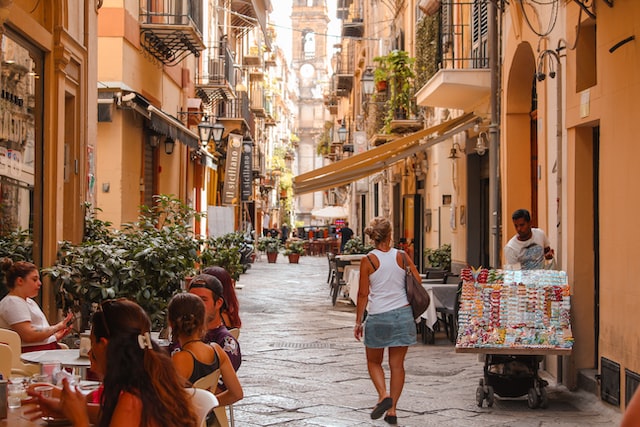
When I don’t know what to do first, I just watch people and pick out someone who looks like they know how to navigate. So as I get off the ferry, I spy the French Canadians and stalk them for a while. At an intersection, I greet them. We are soon sitting in a coffee shop laughing. It feels like the welcome committee. Then, too, I feel welcome when I ferret out, without incident, my next hostel. Two documentarians from The Nederlands are talking in the dining room about their work, and they abide by my interest. They are in Palermo to highlight the Anti-Mafia group Addiopizzo, and it doesn’t take much to interest me in staying through Saturday for the Anti-Mafia tour, a few days hence. And it doesn’t take long to fall in love with the mysterious Palermo.
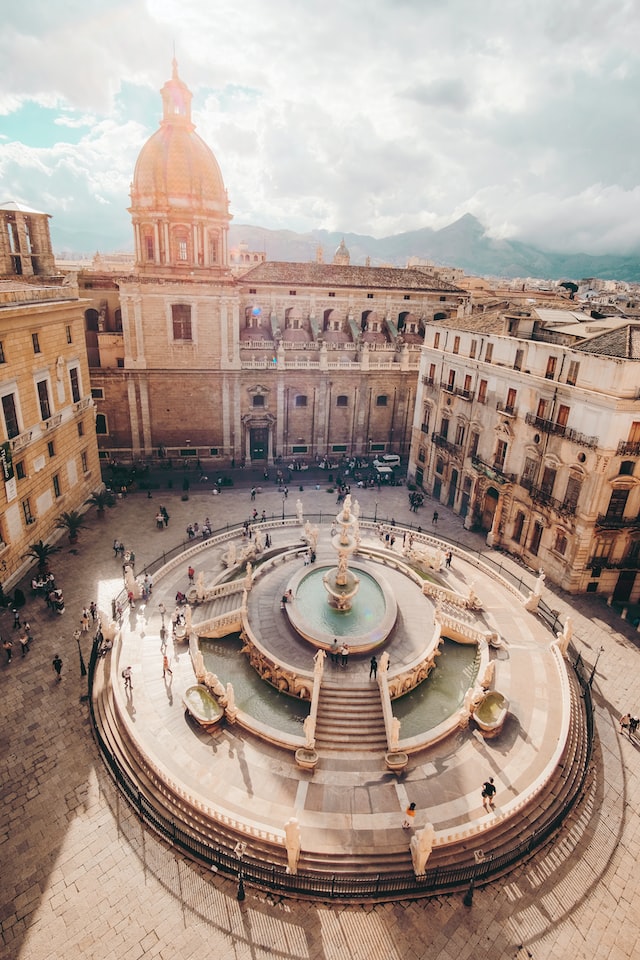
The next day I am ambling, lost and happy, down Palermo’s streets. I am choosing olives at a thousand-year-old street market, gazing at Sicilians, who look dark, light, blue-eyed, blonde, you name it.
It is all a hallmark of Palermo’s extreme diversity. It’s also the Cultural City of 2018, making all the eateries and art seem even more hip and fascinating. I catch the World Press photo exhibit highlighting global beauty and violence just to provide gritty context. Violence and beauty, the way of the world.
The hostel is respite. Here, there is wine and conversation on the outdoor balcony, late into the night, in three languages. Ancient rituals are being repeated. A drum beats. The moon shines. One of the men sings in Sicilian and mocks me for saying that Sicily was like going to the moon.
The next day I dip into a church, an Anglican one, for respite. It is another hallmark of traveling: those quiet entrances. Here’s I can sit in a pew where other butts have sat over time and prayed with their own fervent human wishes and sorrows, gazing into the church’s awe-inspiring domes graced by angels, created by artists, borne of enormous wealth and also the pennies of the poor. Churches offer a bulwark against overstimulation, a chance to go inward. I light candles to ancestors and am paid back in fullness with heightened perspective. Gratitude floods over me for so many things, for traveling’s near-misses, for its sharpened instincts and pleasures. Churches are a chance for repose, reflection.
But two British women, who turn out to be ex-pats living in Palermo for the last forty or more years, are talking with the priest. He is going to give a sermon come Sunday on divorce. Religion doesn’t condone divorce. Neither do I. But as they say, what’s worse than a terrible divorce? A terrible marriage. The priest, fortunately, has some things to say on the matter, and he doesn’t believe, for example, that an abusive marriage is a real marriage. Thus, absolution.
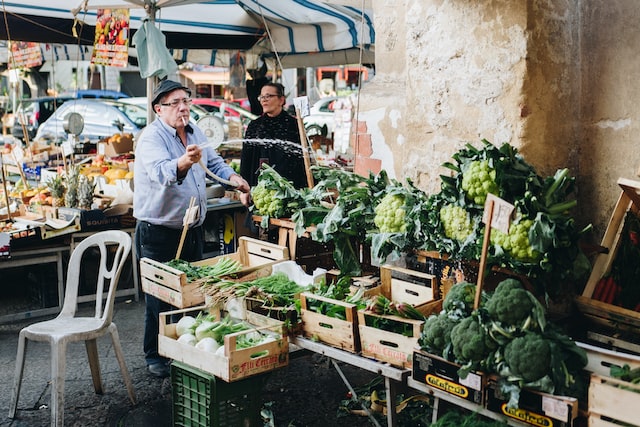
I did not come for absolution. Nor did I expect a free lunch. But feeling brave, I ask the two women if there is a good place to eat nearby, and would they like to join me? One actually accepts and has a favorite place, an old place, right next to the theater.
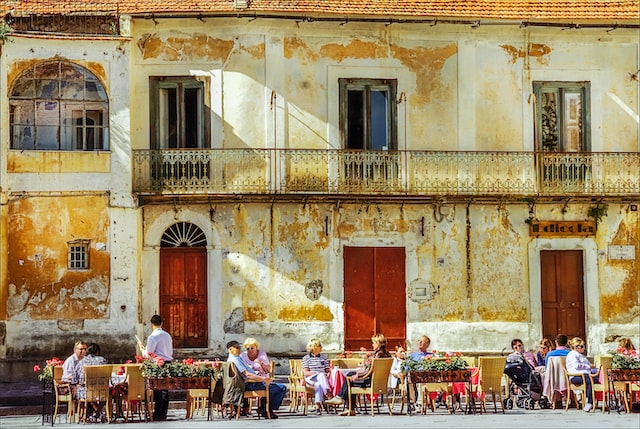
Before you know it, my new best friend Petra and I are soon there, and in the blink of an eye, she and the waiter have curated a perfect meal. I have landed in heaven. We are soon trading stories, from the joy of travel to the blessings of friendship. We have survived losses: recently for both of us, our mothers, and before that, beloved sisters. We both sense that they are with us, abiding here in the moment. We have a toast to them, and us: “salute!” with a crisp white wine. Before is a gorgeous meal, with silvery sardines, eggplants, anchovies.
Petra won’t hear of my taking the check, and we move on to the cozy apartment she bought in the 1970’s complete with her own tiny orchard. More stories, a story for every elephant she has collected over the years: English toffee, coffee, oranges from the garden.
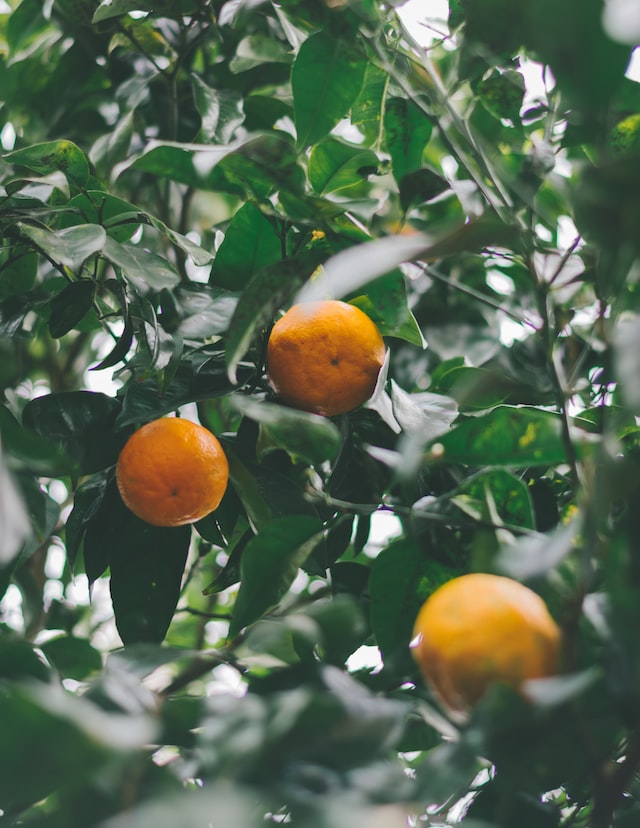
I think about the way that my selfish little trip is not helping humanity nor saving the world. Today, it is just a story told by two women who have much to say to each other about our lives, stories which run along with some universal themes. But today, this basic human connection seems like way more than enough.
But the next day runs along a more dangerous theme, yet also reveals how people can be brave and change the world. Thus the Anti-Mafia Tour. There’s nothing like a great guide who knows her subject. Such was the case. “There is nothing folkloric or romantic about the Mafia,” our sturdy and tough young guide says. “I hate them.” She is a propaganda genius, idealist, and preacher of the first order who speaks multiple languages without batting an eye.
Here is a woman of fierce commitment: “It is organized crime and they will use children, traffic drugs, murder, whatever. It is about power and money and nothing else.” We stop at various sites, including the Justice Center, where two judges were murdered, and the church where the priest was murdered. Those incidents shook people to the core. “I would talk about this forever,” says our guide. No one in the group is left unshaken.
